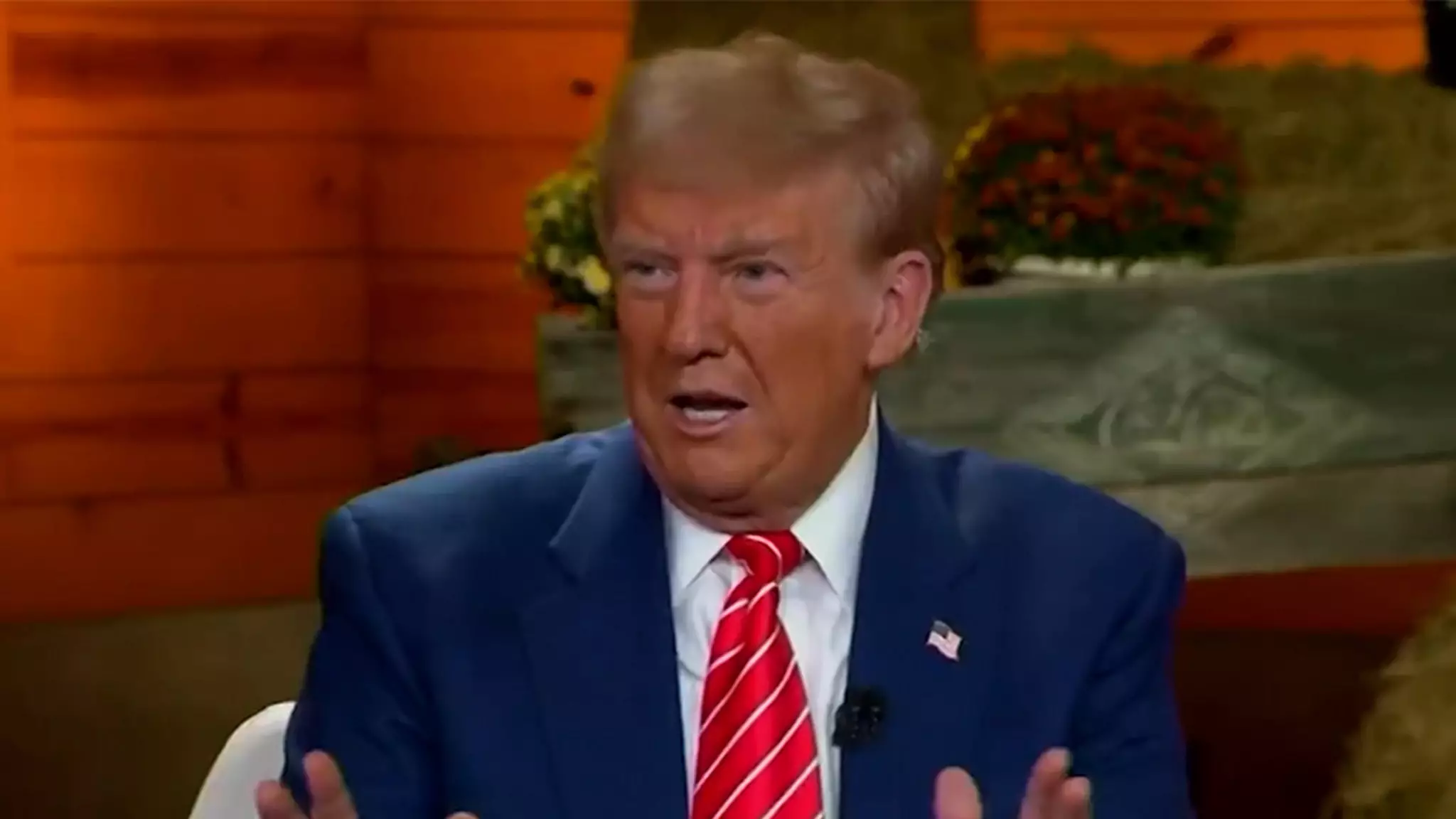During a recent town hall event in Georgia, former President Donald Trump made headlines with his comments on women’s issues, specifically addressing in vitro fertilization (IVF). This gathering of female supporters provided him with an opportunity to redefine his image among women voters, but as with many of Trump’s interactions, the execution was met with mixed reactions. Instead of focusing purely on policy, he seemed to underscore the appearances of some female politicians, which raises questions about his approach in a landscape increasingly demanding gender sensitivity and scrutiny.
Trump’s remark that Senator Katie Britt is a “fantastically attractive” person before addressing her role and responsibilities as a U.S. senator was strikingly incongruous. This comment, juxtaposed with his discussion on IVF, sent ripples through social media platforms, where many voiced their discomfort. Despite being arguably unintentional, the emphasis on Britt’s looks over her qualifications suggests an outdated narrative that risks alienating a demographic he aims to engage more deeply. Such observations indicate that even in discourse surrounding vital issues like reproductive rights, there remains a propensity for superficial judgments.
The town hall wasn’t all about aesthetics, as Trump also engaged in a dialogue about IVF, mentioning the Alabama Supreme Court’s ruling declaring embryos created through this process as children. This ruling has led to several clinics in Alabama halting operations, leaving many couples grappling with the implications of the law. Trump’s assertion that he would support IVF in a potential future administration appears to be a significant policy position, showcasing an attempt to connect with voters on this deeply personal issue. However, it remains to be seen how genuine these claims are and whether they align with the complex realities women face in reproductive health.
Moreover, it is critical to consider this discussion within the broader context of women’s rights and reproductive health legislation. Trump’s stance suggests a potential pivot toward more supportive narratives around IVF, which could resonate with voters concerned about the diminishing access to reproductive technologies. However, voters must remain cautious of such pronouncements, especially when they are intertwined with comments that seem to trivialize women’s professional capabilities based solely on appearance.
While Trump’s engagement with women’s issues like IVF may present an opportunity for progress, his delivery and priorities warrant skepticism. The challenge ahead for him—and for any politician—is to maintain a respectful discourse that honors both the complexity of women’s issues as well as the intelligence and capabilities of women themselves. As the political landscape continues to evolve, leaders must adapt their styles and narratives to ensure meaningful and respectful engagement with all constituents. It’s a fine line to walk, and how Trump manages this could significantly influence his support among women in the political arena.


Leave a Reply